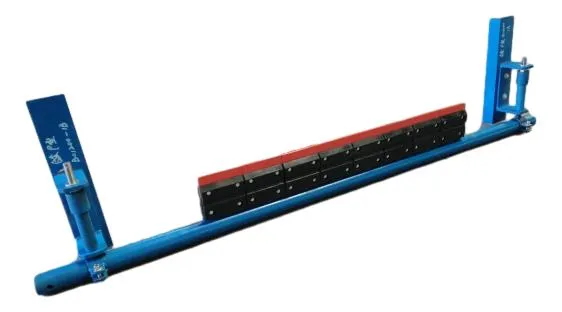 Afrikaans
Afrikaans  Albanian
Albanian  Amharic
Amharic  Arabic
Arabic  Armenian
Armenian  Azerbaijani
Azerbaijani  Basque
Basque  Belarusian
Belarusian  Bengali
Bengali  Bosnian
Bosnian  Bulgarian
Bulgarian  Catalan
Catalan  Cebuano
Cebuano  Corsican
Corsican  Croatian
Croatian  Czech
Czech  Danish
Danish  Dutch
Dutch  English
English  Esperanto
Esperanto  Estonian
Estonian  Finnish
Finnish  French
French  Frisian
Frisian  Galician
Galician  Georgian
Georgian  German
German  Greek
Greek  Gujarati
Gujarati  Haitian Creole
Haitian Creole  hausa
hausa  hawaiian
hawaiian  Hebrew
Hebrew  Hindi
Hindi  Miao
Miao  Hungarian
Hungarian  Icelandic
Icelandic  igbo
igbo  Indonesian
Indonesian  irish
irish  Italian
Italian  Japanese
Japanese  Javanese
Javanese  Kannada
Kannada  kazakh
kazakh  Khmer
Khmer  Rwandese
Rwandese  Korean
Korean  Kurdish
Kurdish  Kyrgyz
Kyrgyz  Lao
Lao  Latin
Latin  Latvian
Latvian  Lithuanian
Lithuanian  Luxembourgish
Luxembourgish  Macedonian
Macedonian  Malgashi
Malgashi  Malay
Malay  Malayalam
Malayalam  Maltese
Maltese  Maori
Maori  Marathi
Marathi  Mongolian
Mongolian  Myanmar
Myanmar  Nepali
Nepali  Norwegian
Norwegian  Norwegian
Norwegian  Occitan
Occitan  Pashto
Pashto  Persian
Persian  Polish
Polish  Portuguese
Portuguese  Punjabi
Punjabi  Romanian
Romanian  Russian
Russian  Samoan
Samoan  Scottish Gaelic
Scottish Gaelic  Serbian
Serbian  Sesotho
Sesotho  Shona
Shona  Sindhi
Sindhi  Sinhala
Sinhala  Slovak
Slovak  Slovenian
Slovenian  Somali
Somali  Spanish
Spanish  Sundanese
Sundanese  Swahili
Swahili  Swedish
Swedish  Tagalog
Tagalog  Tajik
Tajik  Tamil
Tamil  Tatar
Tatar  Telugu
Telugu  Thai
Thai  Turkish
Turkish  Turkmen
Turkmen  Ukrainian
Ukrainian  Urdu
Urdu  Uighur
Uighur  Uzbek
Uzbek  Vietnamese
Vietnamese  Welsh
Welsh  Bantu
Bantu  Yiddish
Yiddish  Yoruba
Yoruba  Zulu
Zulu Suppliers of Conveyor Rollers for Efficient Material Handling Solutions
Understanding Conveyor Rollers A Guide to Suppliers and Their Offerings
Conveyor systems are pivotal in numerous industrial settings, streamlining the movement of goods and materials. A critical component of these systems is the conveyor roller, which is responsible for providing support and facilitating the movement of materials along the belt. In this article, we will explore the significance of conveyor rollers, various types available, and how to choose reliable suppliers.
The Importance of Conveyor Rollers
Conveyor rollers are essential in maintaining the efficiency and productivity of conveyor systems. They reduce friction and wear on the conveyor belt, allowing for smoother transportation of goods. This efficiency not only minimizes operating costs but also enhances the lifespan of the conveyor system overall. Different types of rollers cater to specific applications, such as transporting heavy loads, handling fragile materials, or working in extreme temperatures.
Types of Conveyor Rollers
1. Straight Rollers These are the most common type of conveyor rollers, used for standard applications. They can be made from various materials, including steel, plastic, and aluminum.
2. Idler Rollers These rollers are designed to support the conveyor belt and allow it to glide smoothly. They play a vital role in preventing excessive wear on the belt and are crucial for maintaining the alignment of materials during transportation.
3. Return Rollers Used on the underside of a conveyor, return rollers ensure that the belt remains in position while it returns to the loading station. They help in keeping the conveyor belt taut and reduce sagging.
4. Guard Rollers These are used to guide the transport of materials, preventing them from falling off the belt. Guard rollers are especially important in applications with inclines or declines.
5. Specialty Rollers For specific applications, such as high-temperature or corrosive environments, specialty rollers made from specific materials or with unique designs are necessary. These might include rollers designed for food-grade applications, where hygiene is crucial.
conveyor rollers suppliers

Choosing Reliable Suppliers
When it comes to sourcing conveyor rollers, choosing a dependable supplier is paramount. Here are some key factors to consider
1. Quality and Standards The longevity and functionality of conveyor rollers depend on the quality of materials and manufacturing processes used. Ensure that suppliers adhere to industry standards and possess relevant certifications. This not only guarantees reliability but also enhances safety in your operations.
2. Customization Different applications require different specifications. A good supplier should offer customization options to meet your specific needs, whether it's altering the size, material, or design of the rollers.
3. Service and Support Post-sale service is just as crucial as the product itself. Choose suppliers that provide excellent customer support, including installation guidance and maintenance advice. Their expertise can be invaluable in optimizing your conveyor system’s performance.
4. Reputation and Reliability Research potential suppliers by reading reviews, checking testimonials, and comparing their offerings. A supplier with a strong reputation in the industry often signals good reliability and quality.
5. Turnaround Time In many cases, downtime can be costly. Assess the supplier’s lead time for delivery and their willingness to expedite orders when necessary. Suppliers that can quickly react to your needs can help minimize disruption in your operations.
6. Price While cost is an important factor, it should not be the sole determinant. Evaluate the value that each supplier provides in relation to their pricing. Often, a slightly higher investment in quality products can lead to overall savings in maintenance and operational costs.
Conclusion
Conveyor rollers are essential components that significantly affect the efficiency of conveyor systems. Understanding the various types of rollers and selecting reliable suppliers are crucial steps in enhancing your operations. By prioritizing quality, customization, service, and reputation when choosing suppliers, you can ensure that your conveyor system runs smoothly and efficiently, ultimately contributing to the overall success of your business. Take the time to research and establish a relationship with reputable suppliers who can meet your needs now and in the future.
-
Revolutionizing Conveyor Reliability with Advanced Rubber Lagging PulleysNewsJul.22,2025
-
Powering Precision and Durability with Expert Manufacturers of Conveyor ComponentsNewsJul.22,2025
-
Optimizing Conveyor Systems with Advanced Conveyor AccessoriesNewsJul.22,2025
-
Maximize Conveyor Efficiency with Quality Conveyor Idler PulleysNewsJul.22,2025
-
Future-Proof Your Conveyor System with High-Performance Polyurethane RollerNewsJul.22,2025
-
Driving Efficiency Forward with Quality Idlers and RollersNewsJul.22,2025





























